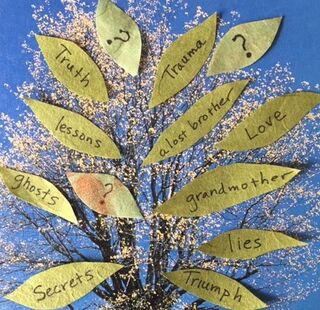Genetics
Are Powerful Ancestors Hiding In Your DNA?
DNA...Do Not Ask? Or, maybe you should.
Posted August 25, 2020 Reviewed by Lybi Ma

According to Disney, when Mulan is faced with the realization that her father is physically unable to join the Imperial Army and go to war against the Huns, she grabs his sword and puts on his armor. But, first, she visits their family shrine to call upon their ancestors to accompany her on this perilous journey.
That thing about acknowledging the ancestors and asking them to aid her on her journey is just a cultural nod to some ancient Chinese beliefs. Right?
Or, is it?
Many cultures hold strong beliefs about deceased ancestors living among us, guiding us, and protecting us as we go about our daily lives. Cultural Anthropologists have documented these beliefs and the rituals surrounding them as though they are purely culturally specific and, as such are interesting in their context, but hardly applicable to the way we live our enlightened lives.
Right?
Enter Ancestry.com and other similar services. Our modern-day version of the ancestral shrine. The missing branches of truth on our family tree. The connection we are looking for in our search for ourselves.
If you are one of the many millions who have swabbed your cheeks or spit in a tube, then waited for the results, you are among those searching for answers. Looking for connections. Trying to make sense of who you are. Or, simply, why you have grey eyes rather than brown like your brother’s.
How about, why you think and feel the way you do? Or the dreams you have? Or the fears you can’t explain?
What’s in your DNA beyond your grey eyes?
Science now supports the idea that there’s more to your DNA than your good looks.
Epigenetics is the study of what is coded in your DNA beyond obvious physical traits. This scientific study is focused on how traumas or other dramatic events of your ancestors have the potential to build an additional layer of information onto your DNA. This overlaid coding of information shapes how your underlying genes express themselves. And, along with your genes, this epigenetic coding can then be passed on, sometimes skipping a generation.
In other words, the imprint of your grandmother’s life experiences can become part of your responses to your life experiences.
Put more broadly, your ancestors’ experiences, their joys, fears, triumphs and failures, might imprint on and shape your personality, bequeathing anxiety or resilience by altering the epigenetic expressions of your genes.
The shrine of your ancestors is hidden in your DNA. The family members who have gone before you are within you and are shaping your thoughts, your dreams and perhaps even your behaviors.
My own personal journey of visiting my ancestral DNA shrine took the form of my latest novel: The Inevitable Past.
In many ways, it’s a ghost story. Or a thread of a story that took me on a literary journey looking for a grandmother I never knew.
My father’s birth mother was found badly beaten on the train station platform in Macon, Georgia in 1902. The police who discovered her, unconscious, quite pregnant, and without any identification, took her to the Door of Hope, a home for unwed mothers. When a doctor examined her, he realized she was dying and made the decision to do a c-section to try to save the baby, my father.
Who my grandmother was, and how her life has shaped mine, has haunted me.
So, I went searching for her in the only way I knew how, by going to Macon, looking for threads of her story, finally putting together a life for her that made sense for me.
It was an odd journey, not unlike discovering via your Ancestor.com initiative that there are family secrets.
The stories locked in our DNA are fascinating. If you can think of your life as a living shrine of your ancestors, you, like Mulan, can gain insight into how recognizing them can give you self-awareness, strength and courage.
When I finished researching and writing a purely fictional book about a grandmother I never knew, I came to think of my own DNA as a shrine where traces of my grandmother, as well as other ancestors, reside and shape my life.
While writing The Inevitable Past I came to understand and believe in ghosts: fingerprints of the past that shimmer and shine not only in the color of my eyes, but the dreams I have and the way I live.
When my sister read the book, she called me.
“At last,” she said, “we have a grandmother. Thank you.”




